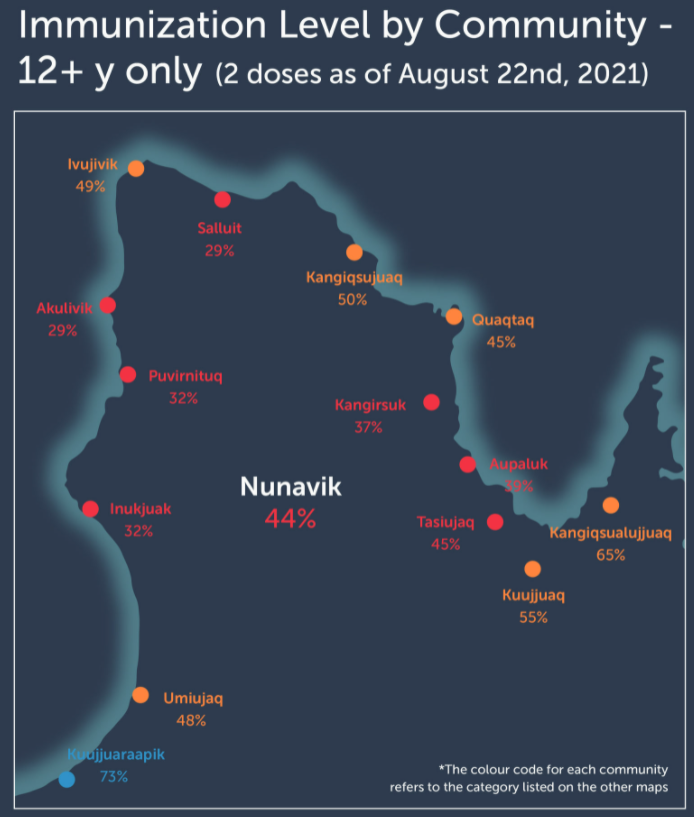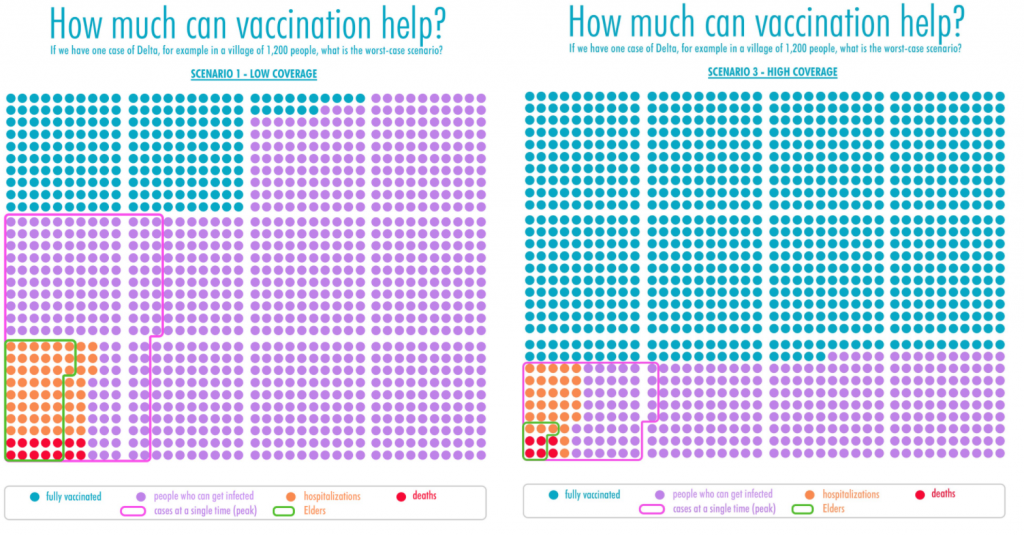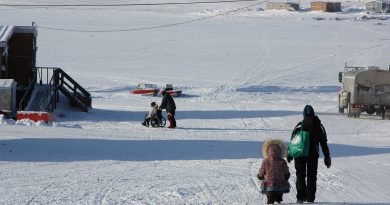Vaccination coverage in Nunavik, Quebec reaches 44 per cent of eligible population

As of August 22, vaccination coverage in Nunavik, the Inuit region of Arctic Quebec, reached 44 per cent of the population 12 years old and up, who have received two doses.
“Immunization coverage, between July 10 and August 22, increased by 6% for the entire population, to reach 34%. 44% of people who can be vaccinated (12 years and over) received two doses,” the Nunavik Regional Board of Health and Social Services (NRBHSS) said in a Facebook post last week when they released the new data.
“Efforts must be increased to reach the 75% target…The Delta variant continues to circulate throughout Canada and elsewhere in the world. It is highly contagious and can cause severe complications.”
Nunavik’s young population has made it more of challenge for the region to attain the vaccination numbers reached elsewhere in the province.
(As of September 20, 83 per cent of Quebecers 12 years and older have received two doses of the vaccine meaning 72 per cent of the total population is double vaccinated.)

But in Nunavik, approximately 20 per cent of the population is under 12 years old. Currently, Health Canada has not yet approved any COVID-19 vaccine for use in children 11 years old or younger.
Delta variant raising concerns
The NRBHSS launched a school vaccination campaign on August 23 assisted by the Red Cross in order to boost vaccination numbers amongst Nunavik residents aged 12-18.
There’s been no community spread of COVID-19 in Nunavik since March 2020, but health officials say they’re watching developments closely in the rest of the province where the Delta variant continues to fuel a fourth-wave.
“The Delta variant is now the most common in Quebec and is much more contagious than the others, the NRBHSS said in a Facebook post on Thursday.
“An outbreak of COVID-19 in a community with a low vaccination rate could lead to many hospitalizations, medical evacuations and possible deaths.”

Nunavik has a population of approximately 13,000 people and is made up of 14, fly-in only communities.
Write to Eilís at eilis.quinn@cbc.ca
Related stories from around the North:
Canada: Nunavut, Canada clamps down on restrictions, makes mask mandatory as 2 cases reported in Kinngait, CBC News
Greenland: Greenland announces COVID-19 reopening plan, Eye on the Arctic
Iceland: Iceland to lift further COVID-19 restrictions September 15, Eye on the Arctic
Russia: Ten percent of population on Russia’s Kola Peninsula has been infected with COVID-19, The Independent Barents Observer
Sweden: Sweden extends COVID-19 test recommendations for travellers from abroad, Radio Sweden



